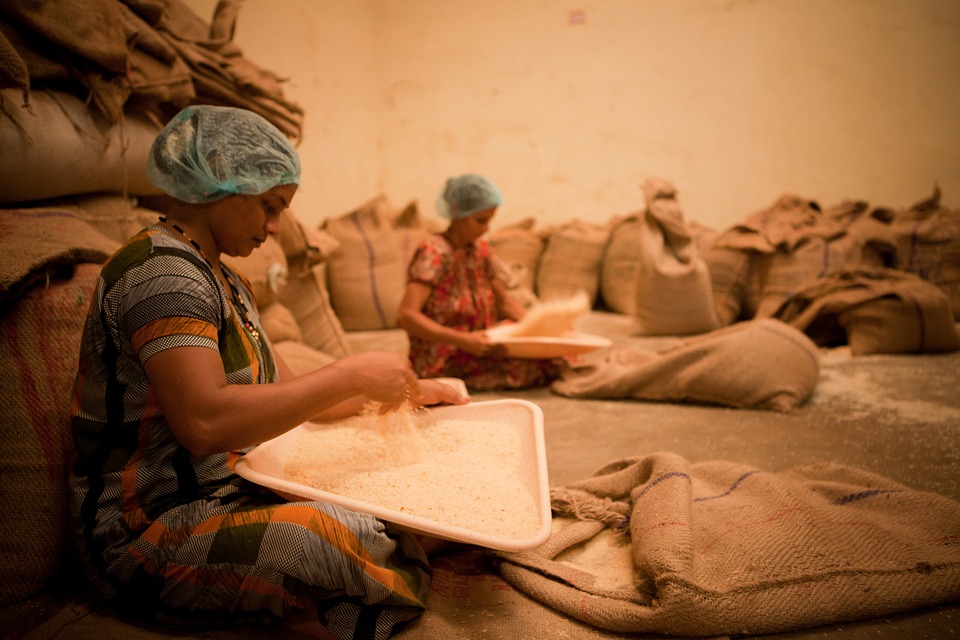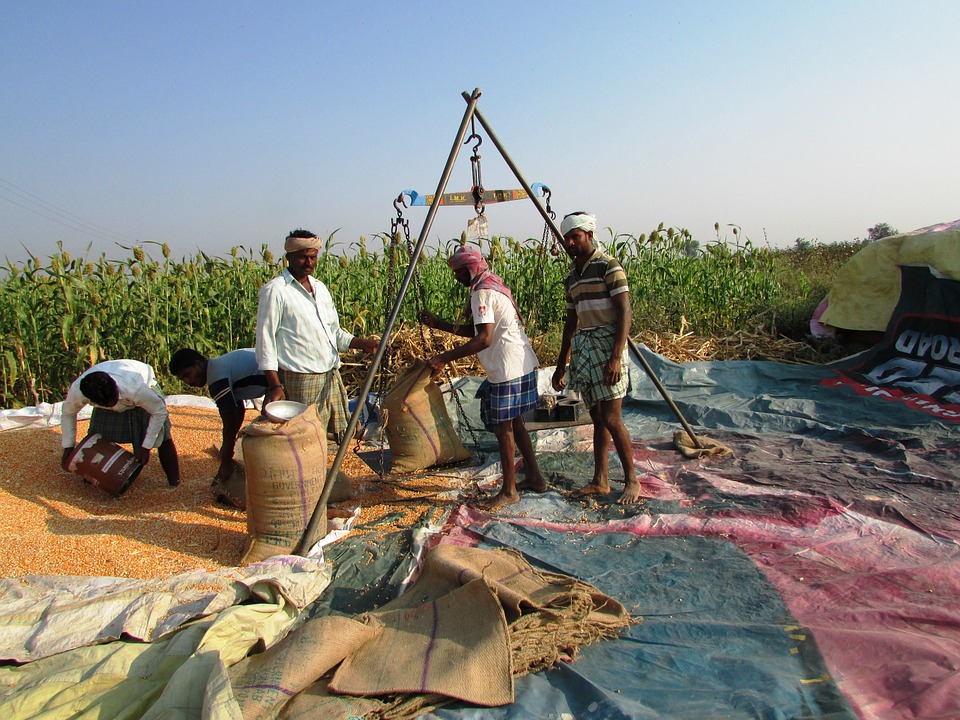UP govt to provide extra 5 kgs free foodgrains to the poor
After the Centre announced free foodgrains to the poor ration card holding beneficiaries, the Uttar Pradesh government has announced additional free foodgrains to 14.5 million poor beneficiaries for May and June.


Around 14.5 million poor people in the state are expected to receive additional five kgs of foodgrains for the next two months. Photo: Pixabay
Two days after the central government announced five kilos a month of free foodgrains (rice or wheat) to 800 million poor ration-card holding beneficiaries for May and June, the Uttar Pradesh government has also announced an additional five kilograms (kg) of foodgrains to the poor under the Pradhan Mantri Garib Kalyan Anna Yojana.
Around 14.5 million poor people in the state are expected to receive additional five kgs of foodgrains for the next two months — May and June. This allocation is over and above the five kgs of foodgrains per month each beneficiary is entitled to under the National Food Security Act, 2013 (NFSA).
Also Read: Centre announces 5 kg free grains a month to the poor for May-June; experts seek extension
In Uttar Pradesh, there are a total of 35 million ration card holders who receive a monthly quota of three kilograms of wheat and two kgs of rice at the subsidised rates of Rs 2 and Rs 3 per kg, respectively through 80,000 ration shops. Of these, 14.5 million are expected to be benefitted by the recent announcement.
Also Read: Rising hunger stares rural India in the face as the second wave of COVID invades villages
In order to distribute foodgrains to 14.5 million people in the state, a total of 750,000 metric tonnes of foodgrains have to be raised every month. “Ration distribution will be done under the supervision of a nodal officer at every ration shop amid strict corona protocol in place to ensure safety of everyone. Ration will be distributed through biometric authentication as done last year during the lockdown period,” said Veena Kumari Meena, state principal secretary food and logistics.

Online monitoring of rations to be distributed in the next two months will also be carried. Electronic Point of Sale (EPOS) machines have been installed that keep updating information on the status of distribution, informed a press statement by the state government.
On April 16, the state Chief Minister Yogi Adityanath had announced that the state government would give free rations and maintenance allowance to the labourers and poor families. At the high level meeting with officials, Adityanath also directed officials to regularly review ration distribution and transfer maintenance allowance directly to the beneficiaries’ bank accounts through the Direct Benefit Transfer system.
Also Read: Excluded by marriage: ‘Over a million women in Odisha left out of PDS’
Public health and nutrition experts have been demanding free additional ration for the poor and the needy in the pandemic. Many have no source of income and are still reeling under the impacts of the last year’s lockdown.
While welcoming the recent announcement by the central government, activists of the Right to Food Campaign, a network of organisations and individuals working on food rights, have demanded an extension of this scheme beyond the two months.
“We welcome this move. Five kilos of foodgrains is good but it is limited to PDS [public distribution system]. Those without ration cards will not get any benefits,” Dipa Sinha, assistant professor, Dr BR Ambedkar University, Delhi told Gaon Connection. “It is also announced only for two months. The programme should be further extended to six months because job recoveries will take time,” she added. Sinha is also associated with the Right To Food Campaign, Delhi.
In order to control the spread of the virus, a number of state governments are enforcing curfews and lockdowns. This has a direct impact on the income of the poor and the migrant workers.
Last summer, during the nationwide lockdown, Gaon Connection conducted a national rural survey of 25,000 respondents to understand the impact of the lockdown on rural households (Read the full survey report here).
As per the survey, only 71 per cent households with ration cards reportedly received foodgrains from the government in the lockdown. However, only 27 per cent of non-ration card holding households received foodgrains support from the government.
UP govt to bear COVID treatment expenses
Meanwhile, Uttar Pradesh has recorded over 35,000 fresh coronavirus infections in the last 24 hours. It continues to remain the second-worst affected state in the country by the coronavirus with the total active caseload standing at 297,616. Over 200 people have lost their lives to the virus in the state yesterday.
Amid rising cases and related deaths, the chief minister has asked officers concerned to ensure that no government or private hospital denies admission to any COVID-19 patients if bed is available. If bed is not available in a government hospital, the patient should be sent to a private hospital.
The state government has also announced to bear the expenses of treatment cost of COVID patients if the patient referred by a govt hospital is not able to bear the expenses of the private hospital. The government will bear treatment expenses as per the rates approved under Ayushman Bharat scheme.
Also Read: Waste and Want: 50 kg of food a person wasted every year, while 14% Indians malnourished

